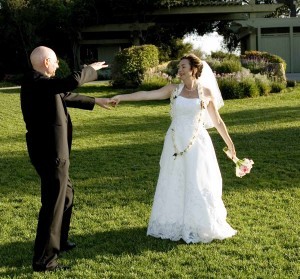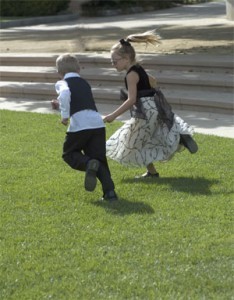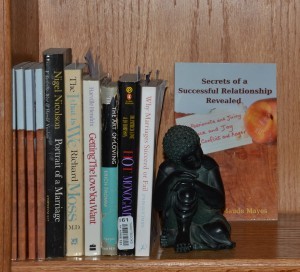Maude Mayes's Blog: Secrets of a Successful Relationship Revealed, page 106
October 18, 2015
You Need to Know Yourself to Have a Good Relationship
 Know yourself, or Thy Self as it were, has been proclaimed by philosophers and religions for thousands of years. A simple enough truth, and yet one that often eludes us. If we had to give one factor that is critical to a successful relationship, it would be that you need to do whatever work on yourself is necessary to understand your responses and behaviors. And this is not something you do and then finish with; it is an ongoing process.
Know yourself, or Thy Self as it were, has been proclaimed by philosophers and religions for thousands of years. A simple enough truth, and yet one that often eludes us. If we had to give one factor that is critical to a successful relationship, it would be that you need to do whatever work on yourself is necessary to understand your responses and behaviors. And this is not something you do and then finish with; it is an ongoing process.
As we learn what motivates us, we can formulate our intentions and make sure they match up with our core values. Its important to be aware of not being driven by responses left over from a different part of our lives or other relationships. Our behavior is learned early; as children it is in our nature to accept facts and copy others. It has to be that way because that is how culture is passed on, and culture is a huge part of who we are. But if that is all that we put out, we are no more than a mirror of society, reflecting back all the ideas and behaviors that we have acquired.
Yet underneath all that are our own experiences and desires, and it is only by realizing and presenting these that we can be authentic. Until then, what we offer to the world is only a regurgitation of the roles and rules of society. These need to be personally evaluated and brought into line with who we are today and what is important to us today. When you know who you are, your responses are authentic and consistent, in the sense that you are always the same person to your partner, and they know that you mean what you say.
You cannot know yourself from within yourself any more than the moon knows what it looks like in the sky. You must step outside yourself to see yourself. Find the part of you that is a larger identity. Contemplate. Use other people as a mirror, even though it may be bent by their own opinions. This is a personal quest. There are many routes; find the ones that suit you best. You can think of it as transcending ego, or learning empathy. This knowing is composed of a series of insights and understandings over a period of time, and is never complete.
With this, you are able to listen fully to your partner without forming your response as they are talking, a really important part of relationship communication. As you come to know yourself you will find yourself free to act more from the present and less from reflexes and reactions from the past. You cannot speak from the “I”, sharing what you feel without making it about the other person, if you are not in touch with who the “I” is. If your mind is busy and filled with thoughts, projections, preconceptions then you will never be able to truly participate in that wonderful activity of co-creating mutual solutions.
The more you come to know and understand your own individuality, the more you will appreciate the individuality of your partner. You will not be looking for yourself in them. A person who is contact with their true self and has become aware of their values and what motivates them, will tend to be more respectful of those around them. It is from this center of personal peace that it becomes possible to enjoy the difference between you and another, and to learn to celebrate the differences you find without any sense of threat or distress.
This quest for the nature of the self is a long and honorable one. “He who knows others is wise; he who knows himself is enlightened,” said Lao Tsu, while Plato said “The essence of knowledge is self-knowledge.” The Upanishads say “Enquiry into the truth of the Self is knowledge,” while Rumi asked “Who am I in the midst of all this thought traffic?”
There are many ways to do this and the paths will be individual for each of you. But if you are to be successful in your relationships, then you will need to get busy with this work and make it a part of your life. The rewards are plentiful and the more you come in contact with your true self, the richer your relationships with others will be.
00
October 14, 2015
Relationship Reading Corner
Here are some articles on Being Right.
Being Right or Being in Relationship: Which Do You Choose? “A person who is more interested in being right will focus on what they are not getting from another person, and spend their time and energies attempting to communicate their unmet needs. A person whose greater interest is being in relationship will focus more on understanding what the other person’s needs are, and in learning more about how they can assist the other person in meeting those needs.” This article also leads to a useful exercise of 10 questions.
Saving your relationship by letting go of the need to always be right “Being right is like an addictive drug. You always need more of it in order to feel satisfied. But the feeling of peace and harmony that comes from surrendering this primitive drive to be right can lead to a lifetime of joy in your personal relationships.”
Why People In Happy Relationships Don’t Worry About Being Right “Learning how to make joint decisions about these marital issues can be difficult: The goal is that both people come out of the conversation feeling respected and heard. Most couples are unsure about how to have such conversations because they focus on the content versus the emotional needs of their partner during difficult conversations.”
00
October 11, 2015
Do You Always Have to Be Right?
 What is it about being right? Why are we all so obsessed with the need for it? Is this really what we want in a relationship, in a conversation, when making decisions and finding solutions? Being right – it’s the cause of most arguments. If neither of you held on to your initial positions, it would be easy-peasy to explore alternatives until you found one that worked for both of you.
What is it about being right? Why are we all so obsessed with the need for it? Is this really what we want in a relationship, in a conversation, when making decisions and finding solutions? Being right – it’s the cause of most arguments. If neither of you held on to your initial positions, it would be easy-peasy to explore alternatives until you found one that worked for both of you.
When you are motivated by the need to be right, you tend not to listen. You tend to be preparing your arguments and prepping your response in your mind the whole time you are discussing things with your partner. There’s no room for listening; there’s no room for relating. The right-wrong approach is really a form of war. It creates a sense of being on opposing sides. This is the antithesis to peaceful relating.
And yet it is so hard to change your position. It feels like a castle on a hill, giving you a commanding view of the entire landscape and providing a safe place against attacks. If you abandoned it, you would feel lost in a strange place with strange customs; you would be vulnerable to disease, food poisoning and robbery. Far better instead to storm your partner’s castle, defeat them and show them that yours is the only safe and sane place to live.
Setting aside the metaphor, let’s look at some of the reasons why people cling to being right.
There is the ego. It’s humiliating to be wrong. If you’re wrong about this, what else might you be wrong about? You can’t trust yourself quite so much and neither can others.
There is the sense of security. Whether the argument you lose is big or small, your world changes, whether it be the physical world or your belief system. All adjustments are unsettling, whether it’s that the living room gets painted blue or you learn that, contrary to the senses, the earth actually goes around the sun.
Or you might cling to being right because, well, you’re right. It’s this way to Phoenix; that way goes to Tucson. A 15% tip comes to $6.00. But if neither you nor your partner are wedded to being right, you’re probably going to muddle your way to the right conclusion.
Everyone wants to feel seen, acknowledged, appreciated and accepted. Often the need to be right is a cry for those things. If the relationship fulfills these needs, you will be less likely to need to be right. You will have less motivation to push for separate solutions, and be more likely to feel in union with your partner and want to find mutual solutions.
The wonderful experiences of intimacy that are possible when you are seeking for mutual solutions can only come about when you realize you are on the same side. There is no right or wrong in this view of things. You are sharing in a co-creative experience of finding something new that is the product of both of you, and not the ideas of the one who can shout the loudest or is most clever at getting their way. This way of making decisions and finding solutions is fun. It is an almost magical process that leaves both partners feeling closer than ever.
We have a saying that pretty much sums up our feeling about being right: “Be loving today. You can be right tomorrow!”
00
October 7, 2015
Relationship Reading Corner
Here are some articles on work in relationships, and whether it is necessary.
Ben Affleck And The Experts Are Wrong: Marriage Is Not Hard Work “But contrary to what everyone seems to think — experts in the field, friends, therapists — even Mr. Affleck — I don’t believe marriage has to be work. I know this because I have been married 31 years, and I don’t consider my marriage work at all. And neither does my husband. ”
Do Relationships Really Need To Be A Lot Of Work? “‘Relationships are a lot of work.’ This is a popular belief that holds some truth: Relationships can be a lot of work, especially when they’re in transition…. Does a relationship need to be a lot of work? Unless you’re the type who likes to work on yourself and your relationship all the time, I say no.”
Relationships Take Work (But Not In the Way You Think) “What I’ve come to realize is that “work” isn’t quite the right term for what it takes to maintain a lasting, long-term relationship. At least, not this negative image of work I’ve envisioned in my head.”
00
October 4, 2015
How to Have a Successful Relationship Without Hard Work
 We so often hear people saying, “If you want a successful relationship, you have to work hard at it.” We have friends whose relationships span decades describing their journey as one of having worked hard to keep it going. There are many therapists who counsel couples to keep working on their relationships if they want to stay together. In fact from every corner we are bombarded with statements that being in a committed relationship will not be easy and will involve unpleasant, though potentially manageable experiences.
We so often hear people saying, “If you want a successful relationship, you have to work hard at it.” We have friends whose relationships span decades describing their journey as one of having worked hard to keep it going. There are many therapists who counsel couples to keep working on their relationships if they want to stay together. In fact from every corner we are bombarded with statements that being in a committed relationship will not be easy and will involve unpleasant, though potentially manageable experiences.
It may be an issue with words and how one describes things. Nevertheless, since words are important, this would be the place for us to step in and say that our relationship has never felt like work. After more than a decade together, neither of us has the feeling that we are struggling to stay together, or that our relationship involves hard but necessary activity to maintain it.
Why do you have a relationship at all? Because you get something out of it. And so, from the other side, your partner must be getting something from you as well. Some of these things are effortless, like looks and intelligence, while others require effort. All effort could be called work, but here’s the thing: there is pleasure in helping people. Try it out: extend a small act of kindness towards a stranger – it may be as small as the proverbial helping an old person across the street – and notice the good feeling that arises as a result.
Giving like this is natural and effortless – there’s no work involved. The sense of work comes when you feel asked to give more than is natural for you. Practical needs, such as help because the car has broken down, seldom cause these feelings; instead, it is emotional needs that bring out the feeling that something is work. These kinds of needs often arise from a sense of incompleteness. This can come from either person. Maybe you are needy and have little ability to give because you are so focused on getting your needs fulfilled. Or maybe it’s your partner who is needy, and you push yourself to fill their needs. This is being complicit, to play a nurse to their wounds. It’s better that they look at their needs and find a way to fill them from within.
Whether it is you or your partner, the way out is to recognize the need, acknowledge that it is yours and yours alone, and find the place within yourself that will continue to exist whether that need is fulfilled or not. That is the true work of a relationship – working on yourself.
Another area that is often the origin of feelings of disharmony in a relationship is the act of measuring. When one partner starts to measure their contributions in comparison to their partner’s, and feels the scales are not evenly balanced, this frequently creates a feeling of distance that seems to call for hard work to repair. Again the answer to this is not to work on the relationship, but rather to work on yourself. The act of measuring usually indicates that the giving is not being done freely, and in order to find out what is happening and heal it, you need to look inside yourself. We cannot reiterate enough that the true work of a relationship is working on yourself.
This is the reality for many couples, but for us, there is no sense at all of needing to work on the relationship. How have we achieved this and how is this done?
The very way that we see each other and interact with each other is at the heart of the answer. We are strongly aware that we are two unique individuals and that our wonderful fitting together is not based on acting the same or expressing ourselves the same way. Instead, our differences are a source of great joy and an enrichment of our lives through the experience of being together. We can do this because we share deep core values and know that neither of us will do something that would breach these shared values.
We are assured that neither of us will ever do anything to hurt or harm the other. In fact we both take great pleasure in helping each other and offering anything we can that the other may need or want. Most of all, we support each other at all times. We know that we are on the same side, and so when solving problems and making decisions, we seek for mutual solutions that will bring us both joy. It would never feel good to force something on the other or do something that would cause distress to our partner.
By trusting our shared values and respecting each other’s differences and autonomy, we live a relationship where joy, not work, reigns. We firmly believe that this same kind of joyful togetherness is available to anyone who is willing to do the real “work”, which is on themselves. Two people who practice this and come together in a relationship, will experience unlimited possibilities of peace and ease.
00
September 30, 2015
Relationship Reading Corner
Here are some articles on commitment. We think that you’ll enjoy them and find some useful ideas.
What do we mean by commitment? “The difficulty is that we’re making promises about behaviors and outcomes, but ignoring the process necessary to achieve that goal.”
What Does Commitment Really Mean To You? “Commitments are made outside of time. The question is not so much about whether or not we stay together, no matter what, but about the kind of relationship we are both agreeing to create together.”
Commitment in healthy relationships This is a more academic view of commitment in relationsips. “Commitment may be considered a relationship skill because the abilities necessary to make and keep commitments must be learned, practiced, and refined just like those for effective couple communication (see Wiley 2007 in this issue) or any other relationship skill.”
Committed Relationship – What Does That Really Mean? “Commitment is what you and your significant other have mutually decided it is. And more importantly, it’s supporting and respecting that vision for each other.”
00
September 27, 2015
Commitment
 I’ve spent a lifetime in short term relationships. They’ve had a life expectancy of three years. Yet Tuesday is my 8th wedding anniversary. What explanation do I have?
I’ve spent a lifetime in short term relationships. They’ve had a life expectancy of three years. Yet Tuesday is my 8th wedding anniversary. What explanation do I have?
On our second date, I told Maude of my relationship history, and her response was to think “But they weren’t me.” So was she right, or did I change?
Bad news: I’m not going to answer that question, because I can’t, and because maybe both answers are true. But I can talk about commitment, because that was a word often thrown at me, and I have the scars to prove it.
Why was commitment so difficult then, and so effortless now? Again, I’ll give two answers. Firstly, I was needy. There was a black vortex of loneliness within me like a whirlpool; I could sometimes ignore it and stay outside its pull, but again and again I was sucked in. And no one could fill that emptiness, no one could match my expectations of intelligence, beauty, assertiveness and amenability once that first flush of infatuation wore off. For that, I am so sorry. But therapy, meditation and life helped me to find myself and change my view to half full, not half empty.
The second reason for my commitment is to do with the way Maude gives me the space to be myself.
In every previous relationship without fail, I felt that there were constraints, limitations, boundaries on who I could be and what I could do and say. (I concede that some of these may have come from my own expectations of how a man should behave.) The effect was that I progressively felt more and more that I did not know who I was, that I felt trapped and stifled until I had to branch free to find myself, painful though that separation usually was.
But with Maude there is no trace of that. She actively revels and applauds my activities in the world, whether with her or without her. She hears my thoughts, feelings and desires, and accepts them as valid and as part of me. With such an extraordinary offer of a place to be myself, why would I ever want to leave?
And so our joint commitments(*) include giving each other the space to be ourselves in the knowledge that such freedom and the self expression it allows leads to the most extraordinary intimacy two people can have.
* See the story of how we wrote our wedding vows. The postings in this blog were the basis for our first book.
00
September 23, 2015
Relationship Reading Corner
Our approach to this issue is sufficiently unusual that it was difficult to find any links that directly address the topic. However, here are three articles that do talk to sustaining joy within your relationship.
Finding the Deepest Joy in Relationships “As we become more inwardly free from our conditioning and our fears, the love and connection that are possible in relationships tend to flow through us more naturally.”
Finding Real Joy in Relationships “Positive psychology is a relatively new branch within science; rather than studying dysfunction and treating illness, researchers in this area focus on investigating and promoting mental health.”
3 Keys to Keeping the Joy in Your Relationship “By making adjustments in our focus, filters and priorities we can literally transform what we bring into a meaningful relationship and what we receive from it.”
00
September 20, 2015
How to Bring Joy to Relationship Problem Solving
 We were at a wedding and were captivated by two children playing. They were so filled with joy and the obvious pleasure of being together. Joy is such an important element in relationships, too. It’s easy to find it in the good times, but it tends to vanish when problems loom. This doesn’t have to be the case.
We were at a wedding and were captivated by two children playing. They were so filled with joy and the obvious pleasure of being together. Joy is such an important element in relationships, too. It’s easy to find it in the good times, but it tends to vanish when problems loom. This doesn’t have to be the case.
When you sit down with your partner to make a decision or to solve a problem, it is possible to do it from a place of joy. It is very important to come from an open mind, and one that is not full of preconceptions. And it is just as important to start out, right from the beginning, with the attitude that the two of you are going to have fun together.
The more you can approach this from a place similar to the way these two children do, the better. (We’ve written about our process for doing this, and you can get a free copy by signing up at the right.) Over time, as you accumulate the positive experiences that will occur through applying this process, this joyous attitude will become more and more natural.So remember, the outcome is an unknown. The only thing you know for sure is the results will be something the two of you have created together, and it will be mutually satisfying, giving you a stronger sense of your union. We have practiced this for years and it is still a breathtaking and magical experience each time!
00
September 16, 2015
Relationship Reading Corner
 Here are some articles on power struggles in relationships and how to avoid or move past them. We may not agree with everything here, but some of the advice is excellent.
Here are some articles on power struggles in relationships and how to avoid or move past them. We may not agree with everything here, but some of the advice is excellent.
“Widen the Lens” to Avoid Power Struggles “In reality, power struggles are created not by differences of opinions, but how we view those differences. By considering a different perspective, we can unlock the power struggle and other options seem to appear as if by magic.”
Understanding Power Struggles In Relationships “when in conversation with another person, especially those within a long-term relationship, people in a very real way join minds. Such a joining explains why people in relationships can ‘finish each others’ sentences,’ or ‘think’ to telephone each other at precisely the same time.”
Diffusing Power Struggles in Marriage “Power struggles are like intentionally hurting your mate. Power struggles are a way of saying: ‘I insist on you agreeing with me. I insist that my point of view is right. I know the correct way to do things, and you must do them my way.'”
Power struggles: Why being right can make everything wrong “To discontinue engaging in a power struggle, you need to move away from the adversarial energy of competition and control (me vs. you, I’m the boss and you’re not, I’m better/smarter than you are) to one of cooperation and camaraderie (We are a team. We can work this out. I cherish you.).”
00
Secrets of a Successful Relationship Revealed
We use this blog to continue the exploration of the magic that can be found in a relationship, and the wider implications of peace for the world. ...more
- Maude Mayes's profile
- 8 followers



